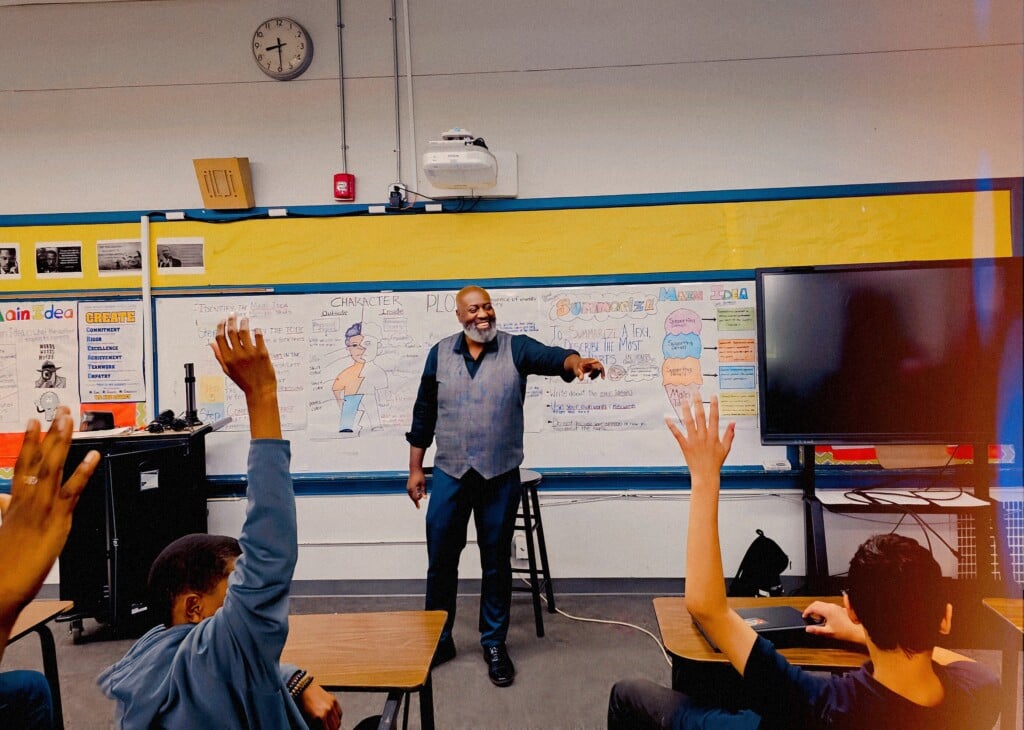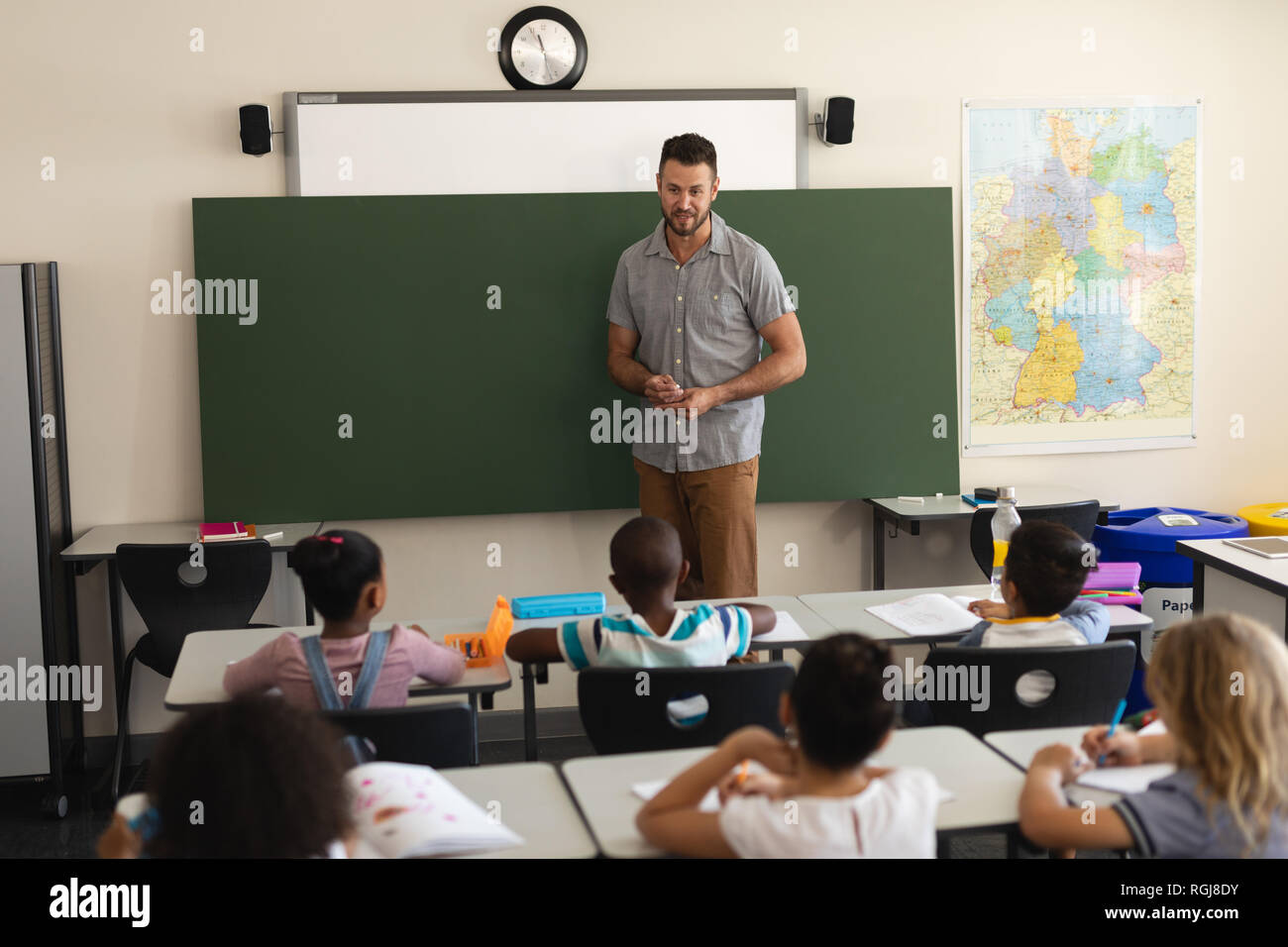Affordable Primary Science Tuition Singapore for All Learning Needs
Affordable Primary Science Tuition Singapore for All Learning Needs
Blog Article
Exploring the Various Mentor Approaches in Key Scientific Research Education And Learning Today
The landscape of key science education is advancing, with different mentor methods getting importance in modern classrooms. Inquiry-based knowing, hands-on experiments, and the assimilation of technology are redefining how educators involve young minds. Furthermore, joint approaches and set apart direction are being utilized to accommodate the diverse demands of pupils, boosting both interaction and understanding. As we take a look at these methodologies, inquiries develop about their performance and the implications for future academic methods. What might these changes in strategy mean for the next generation of students?
Inquiry-Based Knowing
Inquiry-Based Understanding (IBL) is an instructional approach that urges pupils to discover clinical concepts via doubting, investigation, and hands-on testing. This technique stresses the duty of trainees as energetic individuals in their discovering, promoting important reasoning and problem-solving abilities. By involving with real-world concerns, students end up being curious and determined, which improves their understanding of scientific concepts.
In IBL, educators function as facilitators, assisting pupils as they browse their inquiries as opposed to providing info directly. This student-centered approach permits for differentiation, accommodating numerous finding out paces and designs. Trainees develop abilities in developing theories, developing experiments, and evaluating data, which are important for clinical literacy.
In addition, IBL cultivates partnership among pupils, encouraging them to share concepts and searchings for. This collective questions advertises social abilities and a sense of area within the classroom. The procedure of questions urges resilience, as students learn to welcome failing as a stepping rock towards understanding.
Hands-On Experiments
Hands-on experiments are an important element of efficient scientific research education, matching the principles of inquiry-based discovering. These experiments enable students to engage straight with clinical principles, promoting a much deeper understanding through experiential knowing. By adjusting products and observing outcomes, young learners can comprehend abstract concepts in substantial methods.
Such activities advertise essential thinking and analytic abilities, as trainees hypothesize end results, conduct experiments, and analyze results. This process urges them to ask concerns, fine-tune their understanding, and create a clinical state of mind. Hands-on experiments can be tailored to diverse understanding styles, guaranteeing that all students have the opportunity to engage meaningfully with the material.
In addition, hands-on experiments often urge collaboration among peers, advertising teamwork and interaction abilities. Functioning in groups allows pupils to share ideas, discuss findings, and gain from each other, which enhances their overall instructional experience.
Integrating hands-on experiments into the main scientific research educational program not only improves the finding out environment but also grows a long-lasting interest in scientific research. By actively getting involved in their education and learning, students are more likely to establish a passion for scientific questions that extends beyond the classroom.

Modern Technology Integration
Integrating innovation into main scientific research education has actually become progressively important in promoting student interaction and boosting finding out end results. Making use of electronic tools, such as interactive simulations, online labs, and academic software program, supplies pupils with opportunities to explore clinical principles in cutting-edge means. These resources assist in a much deeper understanding of complicated topics by allowing learners to imagine and manipulate variables that would certainly be not practical in a traditional classroom setup.
Moreover, technology combination encourages customized discovering experiences. Trainees can advance at their very own rate, taking another look at challenging concepts through multimedia sources, which deal with various discovering styles. This adaptability not just supports specific development however also grows a feeling of freedom in students.
Furthermore, innovation functions as a bridge to real-world scientific research, connecting trainees with present research and specialist contributions. Accessibility to on the internet databases and clinical journals broadens click pupils' point of views on scientific questions and promotes crucial thinking abilities.
Collaborative Knowing
Joint understanding plays an essential duty in primary scientific research education by cultivating team effort and interaction skills amongst students. This strategy motivates learners to collaborate, share expertise, and participate in analytic, which enhances their understanding of clinical concepts. By taking part in team activities, pupils learn to express their ideas, pay attention to diverse perspectives, and work out options, all of which are vital skills in both real-world and scholastic contexts.

Study suggests that collaborative learning can lead to enhanced inspiration and involvement in science topics, as pupils find pleasure in common experiences (primary science tuition Singapore). Additionally, this method prepares pupils for future collaborative ventures, furnishing them with the abilities necessary for reliable teamwork in college and professional environments. Eventually, accepting joint learning in primary science education and learning can significantly improve the learning experience and promote a deeper understanding of scientific inquiry
Set Apart Instruction

Distinguished guideline can manifest in different means, such as varying the material, procedures, or products of understanding. For example, instructors might use tiered tasks that give varying degrees of complexity, allowing students to function at their corresponding readiness levels. In addition, versatile organizing strategies can assist in cooperation among trainees with different abilities, fostering peer understanding.
Assessment plays an essential role in this approach, as it educates instruction and assists instructors recognize each student's unique needs. Formative assessments, such as monitorings and quizzes, can assist educators in adjusting their strategies to boost discovering results. primary science tuition Singapore. Ultimately, by executing separated direction in primary scientific research education, instructors can cultivate a much more fair and effective discovering atmosphere, empowering all Check Out Your URL trainees to reach their full potential in understanding clinical sensations
Final Thought
In summary, the diverse teaching strategies in key scientific research education, including inquiry-based understanding, hands-on experiments, modern technology assimilation, joint understanding, and distinguished guideline, jointly add to an extra efficient knowing setting. These techniques promote critical reasoning, analytic skills, and a much deeper comprehension of clinical ideas. By executing these approaches, teachers can create encouraging and engaging classrooms that attend to the different demands of trainees, eventually promoting a lifelong rate of interest in science and improving academic success.
Inquiry-Based Understanding (IBL) is a pedagogical strategy that encourages trainees to discover scientific principles with questioning, investigation, and hands-on trial and error.Collective understanding plays an important duty in main scientific research education and learning by fostering team effort and interaction skills among students.Research study shows that collaborative knowing can lead to raised motivation and involvement in science subjects, as trainees discover satisfaction in common experiences.In promoting a comprehensive learning environment, separated guideline emerges as an essential approach to accommodate the diverse requirements and capabilities of trainees in key science education. Eventually, by carrying out separated guideline in main scientific research education and learning, teachers can grow a more fair and efficient understanding setting, equipping all students to reach their complete potential in comprehending scientific sensations.
Report this page